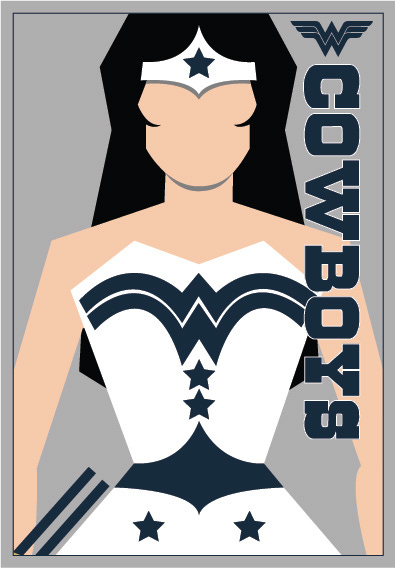I first watched America’s Sweethearts on July 25 and finished it at dawn on July 26. I couldn’t get enough and I needed more. So with my Paramount+ subscription handy, I started the original show from the beginning and journeyed my way to Dallas, TX to meet Kelli Finglass and the Dallas Cowboys Cheerleader (DCC) hopefuls for the class of 2006.
Dallas Cowboys Cheerleaders: Making the Team (DCC: MTT) had all the calling cards of early reality television: a 4x3 aspect ratio, cringe-worthy audition moments, the same background music as America’s Next Top Model as well as the quintessential makeover day, and light cultural appropriation. It was familiar.
What makes Dallas Cowboys Cheerleaders: Making the Team distinct from other reality shows is its inherent Southerness. Unlike American Idol, So You Think You Can Dance, or even Bravo’s Southern Charm is that a candidate’s presentation will affect their squad potential. The expectations were clear: be gorgeous, flexible, and coordinated, and more specifically: Christian, white, and thin.
But surprisingly even more important than physical appearance, is their commitment to Southern values. A contestant’s graciousness, poise, and professionalism are weighed more heavily than their danceability or look combined. Many contestants have been sent home after a fumbled media day, panel interview, or social media sweep that reveals a lack of cultural knowledge, studiousness, or maturity.
In Season 13, a candidate infamously could not recall what what the #MeToo movement was and another failed to name three Democratic nominees in the 2020 election. Another contestant didn’t know who the owner of the Dallas Cowboys was when asked by Charlotte Jones, Jerry Jones’ daughter. Hopefuls are expected to have a well-rounded knowledge base of NFL trivia and current events all while perfecting their high kicks and jump splits.
In Season 1, when DCC hopeful and Julia Roberts look-alike, Meagan Flaherty, was perceived as unenthusiastic about team bonding activities she was tasked with reading a book on Jackie Kennedy, What Jackie Taught Us: Lesson from the Remarkable Life of Jacqueline Kennedy Onassis. Presumably after reading about Jackie O., Meagan would return to training camp a more “proper and polished” woman. *Spoiler alert*, she didn’t make the team.
Adapting to Southern respectability politics is a pillar of DCC. Many candidates grew up in the South or went to a Southern university and are innately aware of these standards. While others have to learn the unspoken rules quickly. Saying “yes ma’am” with a smile after receiving harsh critiques, arriving on time to philanthropic events, being a gracious team player when you don’t make show group and even when you don't make the team, accepting the bad news with decorum could impact whether you will be one of the thirty-six women left on the field.
This idea of maintaining composure while being pushed to your limits physically, mentally, and emotionally is why DCC embodies the feminist archetype of the Superwoman. The Superwoman does it all: works full-time, goes to school, and runs a household, all while looking flawless, being kind, and in this case dancing with style. Ironically, some hopefuls say they feel like Wonder Woman when they try on the uniform for the first time. But in reality, they are not superheroes and a DCC has to balance it all with little financial support from the organization.
The unpaid labor required to be a DCC is undervalued when compared to the salaries of Dallas Cowboys football players. Expenses of a DCC include the cost of relocating to Dallas, Kitty Karr dance classes, private studio time, hair, makeup, audition costumes, etc. On top of rent, car payments, gas, and groceries, the gender pay gap is a deep chasm in Dallas.
Under so much physical and financial pressure, many women fail to uphold the Superwoman archetype and get cut from the team. Kristin (Seasons 12-14) drove 100 miles a day to and from her full-time job as a preschool teacher and was cut for looking fatigued; she made it next year. Malena (Seasons 13-14), a college football recruiter, ended up quitting her job because of the demands of the DCC schedule and was cut, re-auditioned, and cut again for her overly emotional response to being cut the first time.
For all its faults, I can’t stop watching DCC: MTT because I love looking at reality TV from an anthropological lens and it’s very entertaining. The procedural format showcases the highs and lows of NFL cheerleading in an oddly comforting way. You know what’s going to happen, and who will likely make the squad. By the end, you are emotionally invested in each woman’s storyline and hope to see them progress as veterans next season. So when my mom asks why her college-educated daughter is watching this nonsense, I’ll say, “Because they’re trying to do it all, just like me.”


